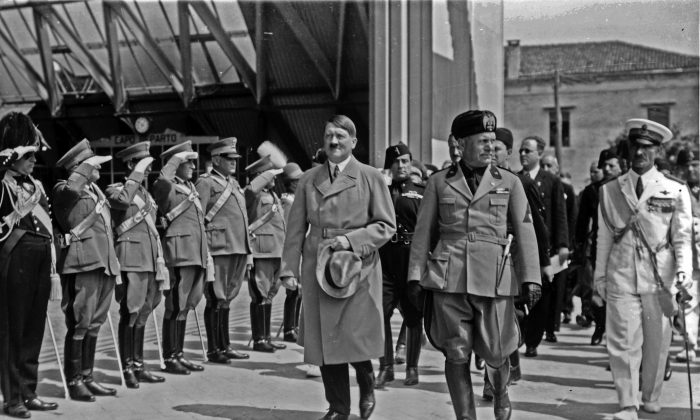•For over forty years, in a spirit of love, members of the Church have been counseled to be thrifty and self-reliant; to avoid debt; pay tithes and a generous fast offering; be industrious; and have sufficient food, clothing, and fuel on hand to last at least one year.
•More than ever before, we need to learn and apply the principles of economic self-reliance. We do not know when the crisis involving sickness or unemployment may affect our own circumstances. We do know that the Lord has decreed global calamities for the future and has warned and forewarned us to be prepared. For this reason the Brethren have repeatedly stressed a “back to basics” program for temporal and spiritual welfare.
•Today, I emphasize a most basic principle: home production and storage. Have you ever paused to realize what would happen to your community or nation if transportation were paralyzed or if we had a war or depression? How would you and your neighbors obtain food? How long would the corner grocery store—or supermarket—sustain the needs of the community?
•An almost forgotten means of economic self-reliance is the home production of food. We are too accustomed to going to stores and purchasing what we need. By producing some of our food we reduce, to a great extent, the impact of inflation on our money. More importantly, we learn how to produce our own food and involve all family members in a beneficial project. No more timely counsel, I feel, has been given by President Kimball than his repeated emphasis to grow our own gardens. Here is one sample of his emphasis over the past seven years:
“We encourage you to grow all the food that you feasibly can on your own property. Berry bushes, grapevines, fruit trees—plant them if your climate is right for their growth. Grow vegetables and eat them from your own yard.” (Ensign, May 1976, p. 124).
•We encourage you to be more self-reliant so that, as the Lord has declared, “notwithstanding the tribulation which shall descend upon you, … the church may stand independent above all other creatures beneath the celestial world” (D&C 78:14). The Lord wants us to be independent and self-reliant because these will be days of tribulation. He has warned and forewarned us of the eventuality.•There are blessings in being close to the soil, in raising your own food even if it is only a garden in your yard and a fruit tree or two. Those families will be fortunate who, in the last days, have an adequate supply of food because of their foresight and ability to produce their own.
President Benson was one of the Lord's prophets. The whole article is better. Now let us look at how the prophets "have prepared us so..." according to Brother Matheson.
With the physical and financial suffering caused by the historic coronavirus pandemic, which has affected millions worldwide, many are wondering if they are ready to deal with such difficulty, challenge and change. Individuals, families and even the Church of Jesus Christ have had to adapt, adjust and endure.
•I can never imagine President Russell M. Nelson saying, “I told you so.” It isn’t in his nature or his pattern of nurturing. The current crisis conditions around the world could certainly cause a leader to validate their own wisdom and foresight. The prophet isn’t concerned about being right — he is obsessed with helping each of us to be ready.
•For the past several months, as global conditions have deteriorated and uncertainty increased, I have heard the echo of voices of prophets and apostles — past and present. In particular, I have regularly heard in my mind the gentle, firm and affirming voice of President Nelson say, “I prepared you so … .”
and then he lists the following ways the prophets have prepared us
• President Nelson pled with us, “Pray in the name of Jesus Christ about your concerns, your fears, your weaknesses — yes, the very longings of your heart. And then listen! Write the thoughts that come to your mind. Record your feelings and follow through with actions that you are prompted to take. As you repeat this process day after day, month after month, year after year, you will ‘grow into the principle of revelation.’ ” ...During these difficult days, I can hear President Nelson say, “I prepared you so… you can receive your own revelation in the midst of the storm.”
•On March 25, the Church announced that all temples worldwide would be closed due to the coronavirus. For decades, we have been taught by prophets and apostles that our homes must be temples and holy places of refuge from the chaos of the world. ...I can hear the voice of Wilford Woodruff say, “I prepared you so… you can bring the blessings of the temple, the power of the priesthood and the spirit of Elijah into your homes.”
•The Church has also closed all missionary training centers to help flatten the spread of the virus as responsible international citizens. Rather than wringing our hands, we can listen to an apostle, Elder David A. Bednar, who in order to say, “I prepared you so …,” declared this in April 2019 general conference:
“The ultimate missionary training center is in our homes; secondary missionary training centers are located in Provo, Manila, Mexico City, and in other locations.” ...I can hear the voice of Elder Bednar say, “I prepared you so… missionary training would continue.” And I can hear Elder Uchtdorf say, “I prepared you so… you could preach and teach and share my gospel in a multitude of ways.”
•Some members thought adjustments to Sunday church meetings meant two-hour Church. Elder Quentin L. Cook looked beyond the horizon, as prophets and apostles do, to share a vision of a dynamic home-centered, Church-supported worship. ...I can hear Elder Cook confidently encourage, “I prepared you so… that when home-centered church was the only church meeting available you could gather in His name and be blessed by His grace.”
•As the program of home teaching transformed into ministering in a higher, holier way, Elder Jeffrey R. Holland...knew that in a coming day it would be more needed and necessary than ever before for those who professed to be Latter-day Saints to be the Lord’s hands in lifting those that suffer, “motivated only by the pure love of Christ to do so.”
I can hear Elder Holland remind us, “I prepared you so… none of our Heavenly Father’s lambs will be lost or lonely.”
•The prophet could say, “I told you so” regarding saving money for a rainy day, preparing food storage and getting our temporal houses in order. Instead President Nelson encourages, “I prepared you so… in a time of economic upheaval you, your family and The Church of Jesus Christ could provide aid and assistance to those that are suffering.”
•Many members have been disappointed that general conference this April will not include an opportunity to gather in the Conference Center in Salt Lake City. Others have lamented that Church leaders are currently not able to travel to stake conferences and be with the Saints.
•Doctrine and Covenants 84:62 says: “Therefore, go ye into all the world; and unto whatsoever place ye cannot go ye shall send, that the testimony may go from you into all the world.”
For a season, prophets and apostles will not be able to travel as they have in the recent past, and general conference will be different. But where they cannot go, apostles and prophets will send God’s word abroad through many means.
I can hear the voice of the Lord say, “I have prepared you so… that My word and My Spirit can be sent throughout the world to every nation, kindred, tongue and people.”
•Despite our faults, follies and inability to follow counsel, prophets and apostles will not unleash flurries of condemning, “I told you so…” statements. Instead they will encouragingly say and compassionately invite with a personalized, “I prepared you so…” you can have peace in this time of trial while you continue to pursue the covenant path on your journey to discipleship.
The Lord through His prophets has been preparing us to meet Him when He comes. We don't need to worry about that day. We need to do our best to follow His prophets - and through them He will have us prepared to enter into the "marriage of the Lamb."
https://www.churchofjesuschrist.org/study/general-conference/1980/10/prepare-for-the-days-of-tribulation?lang=eng&fbclid=IwAR251iQAKoAhdiW-y-Pe3ulSWC-zpRwrtsY9bP154wOY6u85vY6u-2g2ZYkhttps://www.thechurchnews.com/living-faith/2020-03-27/boyd-matheson-coronavirus-covid-19-nelson-prophets-preparation-church-jesus-christ-178510?fbclid=IwAR0X9iHYEkGM3em1xCwsdls7pTRD0vZdpKKQVb_6ctrjo49VeJbB8i0rqOM


